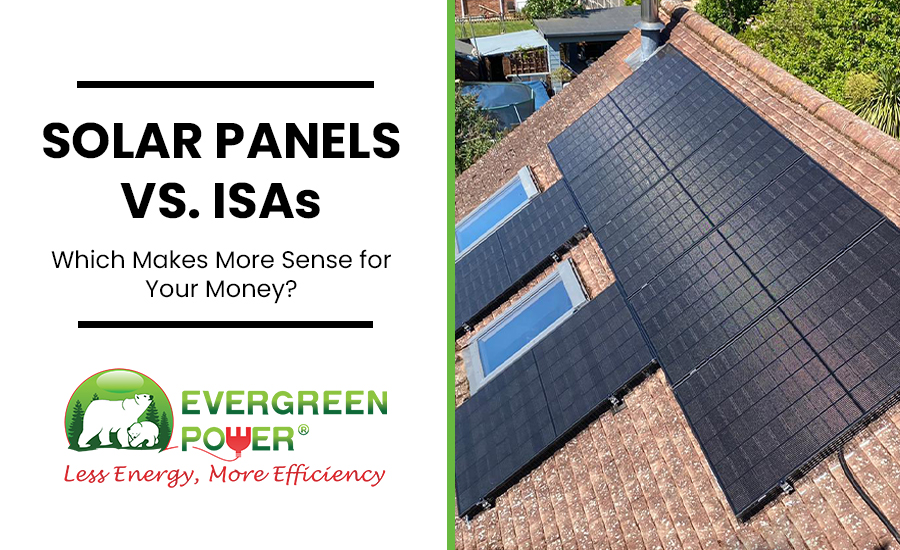
Let’s be honest — deciding where to put your savings isn’t exactly thrilling. But in 2025, with energy bills still biting and interest rates doing their usual dance, it’s a pretty important question:
Should you stick it in an ISA, or slap some solar panels on the roof?
Both sound sensible. One is safe and tax-free. The other promises free electricity and green bragging rights. So which one actually gives you more back over the long run? Let’s dig in.
First Things First — What Are We Comparing?
Let’s break it down.
1: The ISA
An ISA (Individual Savings Account) lets you save or invest money without paying tax on the returns. There are two types most people use:
- Cash ISAs – Basically a savings account with tax-free interest.
- Stocks & Shares ISAs – Invest in the market for potentially higher (but riskier) returns.
In 2025, you can put up to £20,000 into one.
2: The Solar Panel System
Instead of growing money in a bank, this option puts your cash into a rooftop solar PV system. Once installed, it:
- Slashes your energy bills
- Powers your home (and maybe your EV)
- Lets you sell unused electricity back to the grid
- Boosts your home’s value
- Helps fight climate change
So yeah — more than just financial gains on the line here.
So, How Do the Numbers Stack Up?
Let’s say you’ve got £8,000 to spend. Here’s what that could look like:
Cash ISA (2025 Rates)
- Average interest rate: ~3.5%
- Return after 20 years: Around £7,000 (not bad, not life-changing)
- Super low risk
- Totally hands-off
4kW Solar Panel System (UK Average Size)
- Cost: £7,500–£8,000
- Savings on energy bills: £500–£700/year
- SEG payments (selling unused electricity): £100–£150/year
- Total returns over 20 years: £13,000–£17,000+
- Payback time: Around 6–9 years
- Bonus: Increases your property value
On pure return alone, solar wins — by a country mile.
But There’s More to It Than Just Numbers
Here’s where the solar option starts to shine a little brighter — pun very much intended.
1. Solar Is a Real, Tangible Asset
You can see it. You use it every day. It’s powering your home, saving you money with every cuppa you boil. An ISA just… sits there.
2. It Adds Value to Your Home
Estate agents across the UK are reporting that homes with solar panels tend to sell for £5,000–£10,000 more and often sell faster. Energy-efficient homes are hot property.
3. It Future-Proofs Against Rising Bills
Energy prices are unpredictable. But with solar, you lock in some control. Every kWh you generate is one you don’t have to pay someone else for.
What’s the Catch with Solar?
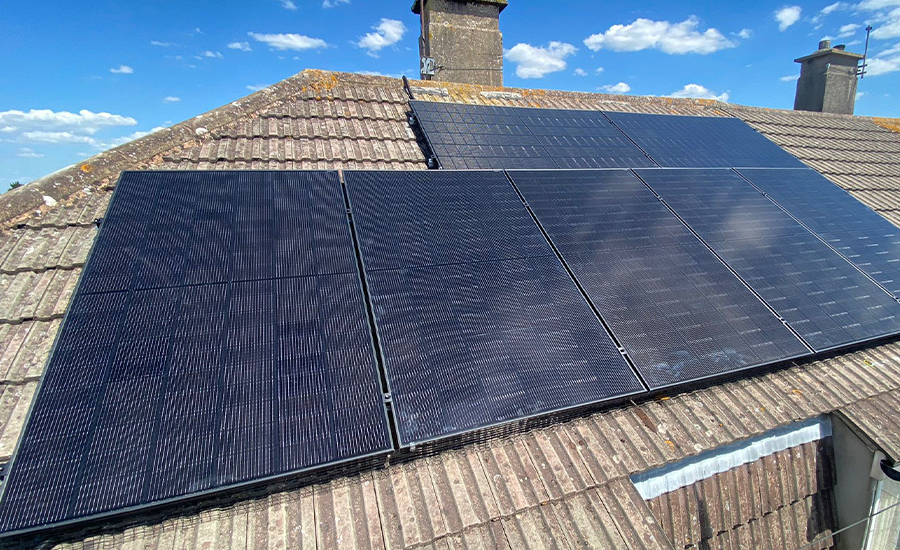
Let’s not gloss over the downsides. Solar does come with a few “cons” to consider:
- It’s not instant access. Your money is tied up in the roof.
- Your home needs to be suitable (good roof orientation, minimal shade, etc.).
- The savings are long-term. If you’re planning to move in a couple of years, it may not be the best choice.
That said, many people still recoup their investment when selling, thanks to the boost in home value and EPC rating.
And What About ISAs — Any Risks?
With Cash ISAs, your main risk is that returns won’t keep pace with inflation. That means your money’s technically worth less over time. With Stocks & Shares ISAs, the risk is clearer — markets go up and down, and your pot could shrink before it grows.
So, lower returns = lower risk — but also potentially lower reward.
Quick Word on Solar Batteries (Bonus Round)
What if you throw in a solar battery uk too?
That adds around £3,500–£6,500 to the upfront cost, but it means you can:
- Use more of your solar energy at night
- Buy less from the grid
- Get closer to energy independence
This can push your annual savings well beyond £1,000, especially if energy prices keep rising.
So… What’s the Smarter Investment?
If you’re risk-averse, want total flexibility, and just want your money somewhere safe, then a Cash ISA might still be your best bet. Fair enough.
But if you’re a homeowner who’s in it for the long haul, wants better-than-bank returns, lower bills, a greener lifestyle, and a higher property value?
Then solar panels UK cost are a no-brainer.
Comparison
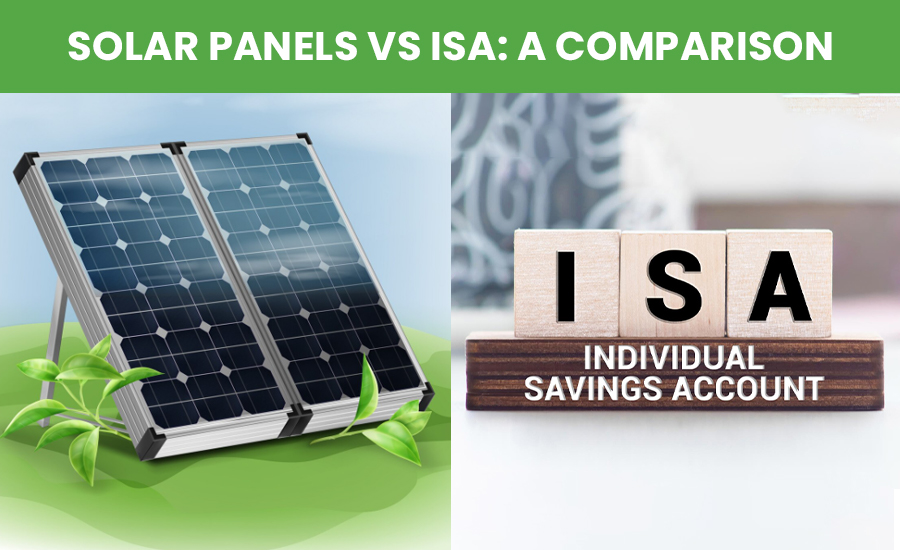
| Feature | ISA | Solar Panels |
|---|---|---|
| Annual Return | ~3–5% | ~8–12% (tax-free) |
| Risk | Low | Low |
| Upfront Cost | Flexible | £6k–£10k |
| Liquidity | High | Low |
| Adds Property Value | ❌ No | ✅ Yes |
| Carbon Savings | ❌ None | ✅ ~1.5 tonnes/year |
Conclusion: Invest in Panels, Reap the Rewards
You don’t need to be a climate activist to go solar — just a bit financially savvy.
It’s one of the few investments that pays you back financially, environmentally, and even emotionally (who doesn’t love lower bills and a guilt-free kettle boil?).
So before you lock your money in another low-yield savings account, ask yourself:
What if your roof could be your best-performing asset?
Want to find out how much you could save? Get a free solar quote today — no pressure, just straight answers.
FAQs: The Bits You Might Still Be Wondering
Q: Can I still invest in an ISA and go solar?
Absolutely. Many people do both. If you’ve got enough saved, why not split the pot?
Q: What if I move house in 5 years?
Your panels stay behind — but they add value to the sale price, so you’re still likely to benefit.
Q: What if I don’t have £8,000 upfront?
There are green finance and solar loan options available with low interest. And the 0% VAT on installations helps too.
Written by: Kyler Walter

- Kyler Walter is a passionate advocate for renewable energy and sustainable living. As a leading voice at Evergreen Power UK, he specializes in solar energy solutions and has played a vital role in promoting innovative, eco-conscious technologies across the UK.
Latest entries
 UncategorizedAugust 5, 2025Are You Eligible for UK Solar Incentives? Here’s What to Know (2025 Guide)
UncategorizedAugust 5, 2025Are You Eligible for UK Solar Incentives? Here’s What to Know (2025 Guide)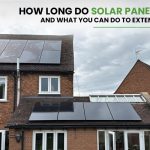 UncategorizedJuly 29, 2025How Long Do Solar Panels Last? And What You Can Do to Extend Their Life
UncategorizedJuly 29, 2025How Long Do Solar Panels Last? And What You Can Do to Extend Their Life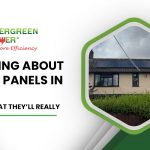 UncategorizedJuly 22, 2025Thinking About Solar Panels in 2025? Here’s What They’ll Really Cost You
UncategorizedJuly 22, 2025Thinking About Solar Panels in 2025? Here’s What They’ll Really Cost You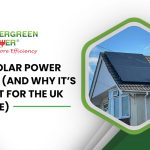 UncategorizedJuly 14, 2025How Solar Power Works and Why It’s Perfect for the UK Climate
UncategorizedJuly 14, 2025How Solar Power Works and Why It’s Perfect for the UK Climate




